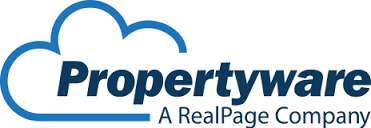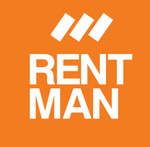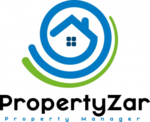Description

Palace

Propertyware
Comprehensive Overview: Palace vs Propertyware
Palace and Propertyware are both software solutions designed to streamline property management tasks, catering to different segments within the real estate industry. Here’s an overview of their primary functions, target markets, market presence, and differentiating factors:
a) Primary Functions and Target Markets
Palace:
-
Primary Functions:
- Property Management: Offers a robust set of tools for managing residential properties, including tenant and lease tracking, accounting, maintenance scheduling, and inspections.
- Automation: Provides automated processes for tasks such as rent collection, invoicing, and communication with tenants and landlords.
- Reporting & Analytics: Features comprehensive reporting tools and analytics to provide insights into property performance.
- Collaboration Tools: Includes features to facilitate communication between property managers, landlords, and tenants.
-
Target Markets:
- Residential Property Managers: Primarily targets small to medium-sized residential property management companies.
- Landlords: Useful for individual landlords managing a portfolio of properties.
- New Zealand & Australia Focus: Originally developed in New Zealand, it has a strong market presence in New Zealand and Australia.
Propertyware:
-
Primary Functions:
- Property Management: Provides a complete range of property management solutions tailored for residential properties, including online payment processing, maintenance management, and tenant screening.
- Accounting & Financial Management: Includes features for tracking income and expenses, budgeting, and financial reporting.
- Customization & Flexibility: Offers customizable templates and workflows to address the specific needs of property managers.
- Mobile Access: Mobile app for managing properties on-the-go.
-
Target Markets:
- Single-Family Property Managers: Targets property managers dealing with single-family homes.
- Regional Focus in the U.S.: Heavily focused on the U.S. market, adapting features to meet local regulations and business practices.
b) Market Share and User Base
-
Palace:
- Market Share: More prominent in the New Zealand and Australian markets. It is a well-established player among local residential property managers.
- User Base: Small to medium-sized property management companies and individual landlords in Australasia.
-
Propertyware:
- Market Share: Holds a significant share in the U.S., especially among those managing single-family homes.
- User Base: Includes property management companies and rental property managers all across the United States with a focus on mid-sized enterprises.
c) Key Differentiating Factors
-
Geographical Focus:
- Palace is centered around Australasian markets, providing features and support tailored to that region, whereas Propertyware is more focused on the U.S. market.
-
Type of Properties Managed:
- Palace is versatile in managing a variety of residential properties, whereas Propertyware specializes in managing single-family homes in a dense market like the United States.
-
Customization and Flexibility:
- Propertyware is known for its customization options, allowing property managers to tailor workflows and reports, potentially offering more adaptability for diverse needs.
-
Ease of Use and User Interface:
- Palace is often praised for its user-friendly interface, making it accessible for smaller operations or those less familiar with complex property management systems.
-
Integration and Automation:
- Palace offers strong automation features to streamline property management tasks, which is particularly advantageous for those looking for operational efficiency within smaller teams.
Overall, both Palace and Propertyware serve to enhance property management efficiency but cater to distinct markets and user needs with a focus on regional priorities and property types managed.
Contact Info

Year founded :
Not Available
Not Available
Not Available
Italy
Not Available

Year founded :
Not Available
Not Available
Not Available
United States
Not Available
Feature Similarity Breakdown: Palace, Propertyware
Palace and Propertyware are both property management software platforms designed to streamline the tasks associated with managing rental properties. Below is a feature similarity breakdown for these products:
a) Core Features in Common
-
Tenant and Lease Tracking:
- Both platforms enable users to manage tenant information and track lease agreements efficiently.
-
Maintenance Management:
- They provide tools for logging, tracking, and resolving maintenance requests.
-
Accounting and Financial Reporting:
- Each offers robust accounting features, including tracking income and expenses and generating financial reports.
-
Online Payments:
- Tenants can pay rent online, and property managers can handle payments and fees through an integrated system.
-
Communication Tools:
- Both offer functionalities to facilitate communication between property managers, tenants, and owners.
-
Document Management:
- Users can store and manage documents related to properties, leases, and tenants in both systems.
-
Inspection Management:
- They provide features for conducting and recording property inspections.
b) User Interface Comparison
-
Palace:
- Known for having a clean and modern user interface. It often receives positive feedback for its intuitive design and ease of navigation, making it accessible to users with varying levels of technical expertise.
-
Propertyware:
- It also offers a user-friendly interface with a dashboard that provides quick access to key features and analytics. The design emphasizes functionality, aiming to provide a comprehensive overview of property management activities.
c) Unique Features
-
Palace:
- Localization: Specifically strong in markets like New Zealand and Australia, which may offer features that are tailored to meet local legislative requirements.
- Mobile App: Palace has developed a mobile app that is often praised for its functionality, allowing property managers to work remotely with ease.
-
Propertyware:
- Customization: Propertyware tends to have more robust customization options for reporting and workflows, making it well-suited for larger property management operations that require tailored solutions.
- Integration Capabilities: It offers a wide range of integrations with third-party applications, which can enhance the capabilities of the platform significantly.
- Marketing Tools: Propertyware includes features for listing management and marketing, helping users promote vacancies and track leads more effectively.
In summary, while both Palace and Propertyware share several core features related to property management, their user interfaces cater to different stylistic preferences and usability aspects. Palace emphasizes simplicity and usability for smaller to medium-sized markets, whereas Propertyware offers a robust, customizable experience tailored for larger operations with extensive integration options.
Features

Communication Tools
Property Management
Accounting and Finances
Custom Reporting

Reporting and Analytics
Communication Tools
Tenant Management
Maintenance Management
Financial Tracking
Best Fit Use Cases: Palace, Propertyware
Palace and Propertyware are both property management software solutions designed to assist property managers and real estate businesses in streamlining their operations. Here's how they might fit different use cases and industry verticals:
Palace
a) Best Fit for Palace:
-
Residential Property Management: Palace is particularly well-suited for residential property management companies, especially those managing a portfolio of residential properties like single-family homes, apartments, and condos.
-
Small to Medium-Sized Enterprises (SMEs): Palace is ideal for small to medium-sized property management businesses that require a user-friendly and affordable solution with robust features for handling tenants, maintenance, and financials.
-
Focus on Automation and Efficiency: Businesses looking to automate repetitive tasks, streamline communication, and efficiently manage property data can benefit from Palace's comprehensive suite of tools.
-
Property Managers in Australia and New Zealand: The software has a strong presence in these regions, making it an attractive option for businesses operating there due to local customer support and compliance features.
d) Catered Industry Verticals or Company Sizes:
- Vertically: Primarily targets the residential property management sector, with features tailored to address the needs of managing residential portfolios.
- Company Size: Optimal for small to medium-sized businesses due to its scalability and cost-effectiveness for managing a moderate number of properties.
Propertyware
b) Preferred Scenarios for Propertyware:
-
Large-Scale Property Management Companies: Propertyware is designed to handle more extensive and complex property portfolios, making it suitable for larger property management firms or those with a mix of residential and commercial properties.
-
Customization and Flexibility Needs: Businesses that require a high level of customization and flexible integrations with various third-party applications or systems may find Propertyware more appealing due to its open API and modular features.
-
Mixed-Portfolio Managers: Ideal for companies managing a mix of property types, including single-family, multifamily, HOA, and commercial properties.
-
U.S.-Based Property Managers: Propertyware has a strong market presence in the United States, with features and support tailored to meet the needs of US-based property management companies, particularly those focusing on tax and compliance in the US market.
d) Catered Industry Verticals or Company Sizes:
- Vertically: Supports a broad range of property types, making it versatile for companies managing diverse property portfolios.
- Company Size: Best suited for medium to large-sized companies due to its scalability and capacity to handle complex operational needs.
Summary
- Palace is best for smaller residential-focused property management companies looking for a cost-effective, user-friendly solution, especially in Australia and New Zealand.
- Propertyware suits larger, more diverse property management firms needing extensive customization, flexibility, and a strong presence in the U.S. market.
Both platforms cater to different business needs and sizes, with Palace excelling in simplicity and regional focus, while Propertyware provides comprehensive solutions for more complex and larger-scale property management operations.
Pricing

Pricing Not Available

Pricing Not Available
Metrics History
Metrics History
Comparing undefined across companies
Conclusion & Final Verdict: Palace vs Propertyware
To provide a comprehensive conclusion and final verdict for Palace and Propertyware, we should analyze each platform based on various factors such as features, usability, pricing, customer support, and scalability. This evaluation will lead to a clearer understanding of which product offers the best overall value and which might be more suited to specific types of users.
a) Considering all factors, which product offers the best overall value?
Palace: Palace is particularly strong in providing an intuitive and user-friendly design, which is well-suited for property managers who prioritize ease of use. It is a popular choice in markets like New Zealand and Australia, offering features specifically tailored to those regions. Pricing tends to be competitive, especially for small to mid-sized property managers who are looking for essential features without added complexity.
Propertyware: Propertyware is more robust and caters to property management companies needing advanced features, especially those managing a large portfolio. It offers extensive customization, reporting, and integrations. Propertyware typically appeals to users who require more comprehensive solutions, such as those involved in managing commercial properties or large-scale residential complexes.
Considering overall value, Propertyware might edge out as the better option for property managers who have larger portfolios and need complex features. Meanwhile, Palace could be considered as offering better value for small to medium-sized property managers who prioritize ease of use and an efficient setup.
b) Pros and Cons of Choosing Each Product
Palace Pros:
- User-friendly interface that is easy to navigate, making it suitable for users who are less tech-savvy.
- Cost-effective for managing smaller property portfolios.
- Strong regional focus, particularly in Australia and New Zealand, with features catering to these markets.
Palace Cons:
- Limited scalability and advanced features compared to larger competitors, which may not meet the needs of very large property management enterprises.
- May lack some customization and integration options available in other sophisticated platforms.
Propertyware Pros:
- Rich feature set that includes advanced reporting, customization, and integrations, ideal for large or complex property management needs.
- Offers scalability, suitable for growing businesses or those managing diverse portfolios.
- Strong support for both residential and commercial property management.
Propertyware Cons:
- Can be more expensive, which may not justify the cost for smaller property management operations or those on a tight budget.
- Complexity of features might add a learning curve for new users, requiring more training and acclimatization.
c) Specific Recommendations for Users Trying to Decide Between Palace vs Propertyware
-
Assess Your Portfolio Size and Needs:
- If you manage a large and diverse portfolio, especially including commercial properties, Propertyware's advanced features and scalability may be more beneficial.
- For smaller portfolios concentrated in Australia and New Zealand, Palace's simplicity and regional customization can suffice.
-
Budget Considerations:
- Evaluate your budget relative to the features you need. Palace might be more cost-effective if you do not require the extensive features offered by Propertyware.
-
Feature Requirements:
- List essential features needed now and in the near future. If advanced reporting and extensive customization are vital, Propertyware is likely more suitable.
- Simplicity and immediate usability might make Palace a better choice if your needs are straightforward.
-
Trial Both Platforms:
- Make use of trial periods or demos offered by both platforms to get a hands-on feel of their interfaces and functionalities before making a final decision.
Ultimately, the choice between Palace and Propertyware should depend on the specific needs and priorities of your property management operations, including factors such as the scale of business, desired features, budget, and geographical focus.
Add to compare
Add similar companies



